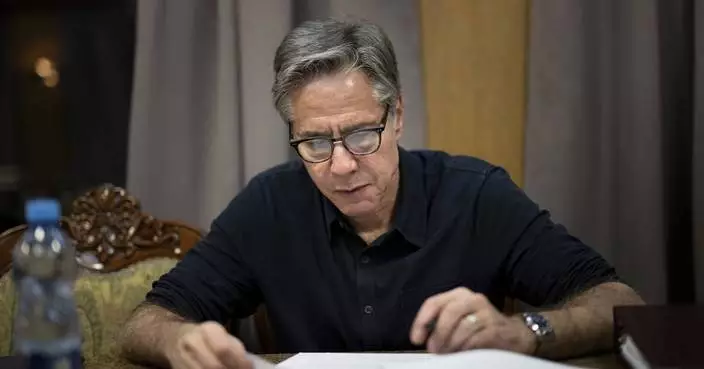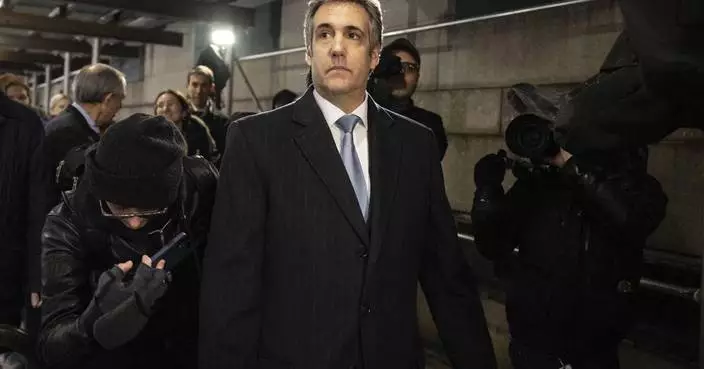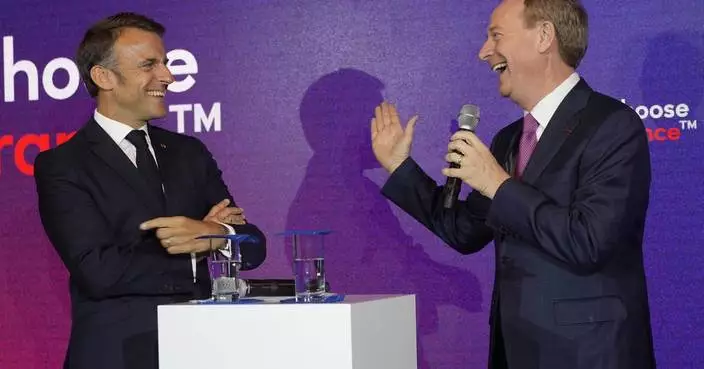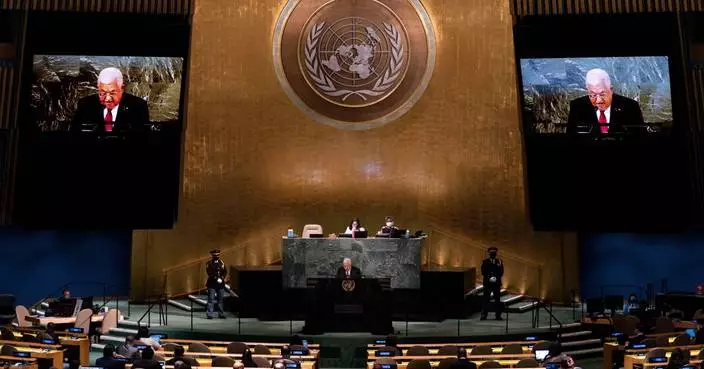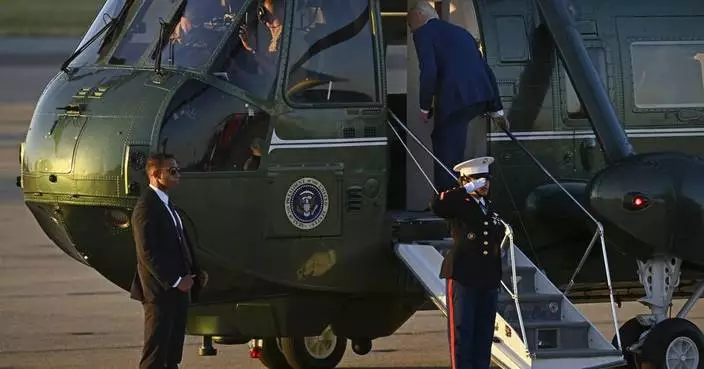The military assistance for Ukraine that's at the center of President Donald Trump's impeachment inquiry started as a mere line item in a massive spending bill.
The money was little discussed, was noncontroversial and was approved with strong bipartisan support.
So, lawmakers were mystified upon learning in August that the $391 million was held up. Trump had ordered the aid frozen, a decision carried out by acting White House chief of staff Mick Mulvaney.
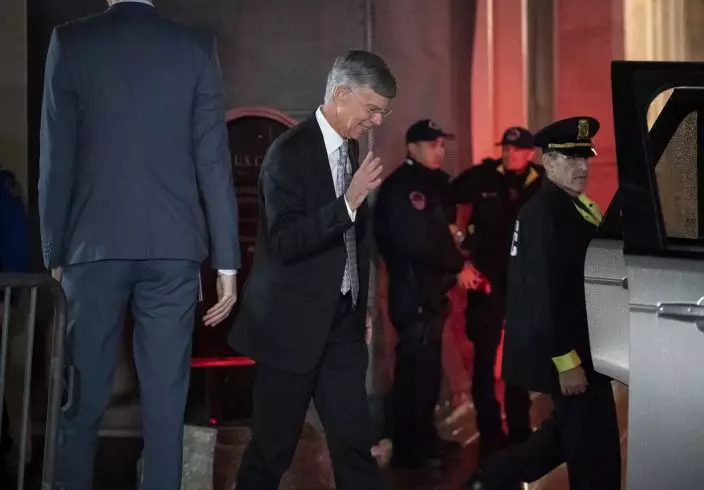
Top U.S. diplomat in Ukraine, William Taylor, departs the Capitol after testifying in the Democrats' impeachment investigation of President Donald Trump, in Washington, Tuesday, Oct. 22, 2019. Taylor testified behind closed doors that President Donald Trump was holding back military aid for Ukraine unless the country agreed to investigate Democrats and a company linked to Joe Biden, providing lawmakers with a detailed new account of the quid pro quo central to the impeachment probe. (AP PhotoJ. Scott Applewhite)
One U.S. diplomat has told House impeachment investigators he learned the aid was being withheld in a July 18 conference call. The diplomat, William Taylor, said he was astonished by the decision.
The eventual release of the aid to Ukraine came only after senators were about to deliver an embarrassing rebuke of the White House.
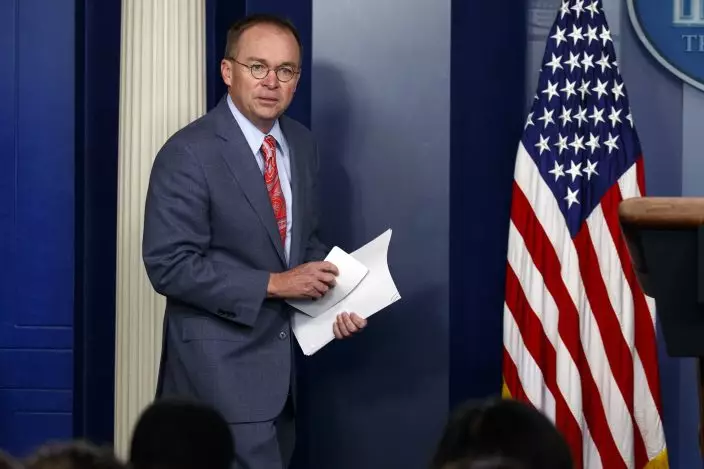
FILE - In this Thursday, Oct. 17, 2019, file photo, White House chief of staff Mick Mulvaney arrives to a news conference, in Washington. On Sunday, Oct. 20, on "Fox News Sunday," after acknowledging the Trump administration held up aid to Ukraine in part to prod the nation to investigate the 2016 elections, Mulvaney defended Trump’s decision to hold an international meeting at his own golf club, although the president has now dropped that plan. (AP PhotoEvan Vucci, File)
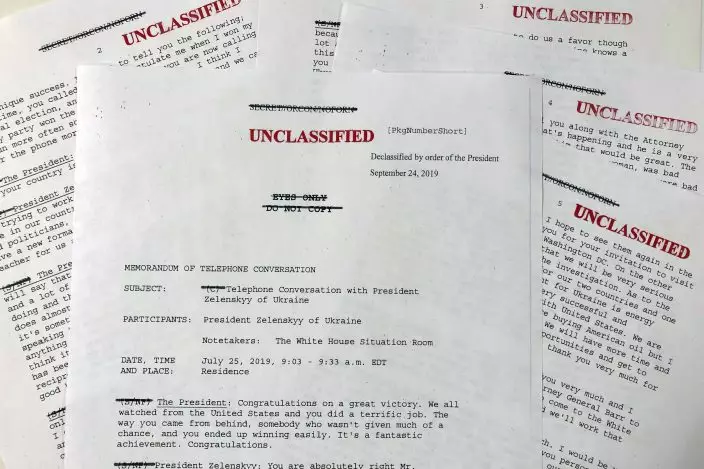
FILE - In this Sept. 25, 2019, file photo, a White House-released memorandum of President Donald Trump's July 25, 2019, telephone conversation with Ukraine's newly elected president Volodymyr Zelenskiy, released Sept. 25, 2019. There were dozens of ears listening to President Donald Trump’s 30-minute phone call with the leader of Ukraine that is at the center of a House impeachment inquiry, and as many eyes that saw what he said.(AP PhotoWayne Partlow, File)
WASHINGTON (AP) — The Biden administration has told key lawmakers it would send more than $1 billion in additional arms and ammunition to Israel, three congressional aides said Tuesday. But it was not immediately known how soon the weapons would be delivered.
It's the first arms shipment to Israel to be revealed since the administration put another arms transfer, consisting of 3,500 bombs of up to 2,000 pounds each, on hold this month. The Biden administration, citing concern for civilian casualties in Gaza, has said it paused that bomb transfer to keep Israel from using those particular munitions in its offensive in the crowded southern Gaza city of Rafah.
The package disclosed Tuesday includes about $700 million for tank ammunition, $500 million in tactical vehicles and $60 million in mortar rounds, the congressional aides said. They spoke on condition of anonymity to discuss an arms transfer that has not yet been made public.
There was no immediate indication when the arms would be sent. Two congressional aides said the shipment is not part of the long-delayed foreign aid package that Congress passed and President Joe Biden signed last month. It wasn’t known if the shipment was the latest tranche from an existing arms sale or something new.
The Biden administration has come under criticism from both sides of the political spectrum over its military support for Israel's now seven-month-old war against Hamas in Gaza — at a time when Biden is battling for reelection against former President Donald Trump.
Some of Biden's fellow Democrats have pushed him to limit transfers of offensive weapons to Israel to pressure the U.S. ally to do more to protect Palestinian civilians. Protests on college campuses around the U.S. have driven home the message this spring.
Republican lawmakers have seized on the administration's pause on the bomb transfers, saying any lessening of U.S. support for Israel — its closest ally in the Middle East — weakens that country as it fights Hamas and other Iran-backed groups. In the House, they are planning to advance a bill this week to mandate the delivery of offensive weaponry for Israel.
Despite the onetime suspension of a bomb shipment, Biden and administration officials have made clear they will continue other weapons deliveries and overall military support to Israel, which is the largest recipient of U.S. military aid.
Biden will see to it that “Israel has all of the military means it needs to defend itself against all of its enemies, including Hamas,” national security spokesman John Kirby told reporters Monday. “For him, this is very straightforward: He’s going to continue to provide Israel with all of capabilities it needs, but he does not want certain categories of American weapons used in a particular type of operation in a particular place. And again, he has been clear and consistent with that.”
The Wall Street Journal first reported the plans for the $1 billion weapons package to Israel.
In response to House Republicans' plan to move forward with a bill to mandate the delivery of offensive weapons for Israel, the White House said Tuesday that Biden would veto the bill if it were to pass Congress.
The bill has practically no chance in the Democratic-controlled Senate. But House Democrats are somewhat divided on the issue, and roughly two dozen have signed onto a letter to the Biden administration saying they were “deeply concerned about the message” sent by pausing the bomb shipment.
One of the letter’s signers, New York Rep. Ritchie Torres, said he would likely vote for the bill, despite the White House’s opposition.
“I have a general rule of supporting pro-Israel legislation unless it includes a poison pill — like cuts to domestic policy,” he said.
In addition to the written veto threat, the White House has been in touch with various lawmakers and congressional aides about the legislation, according to an administration official.
“We strongly, strongly oppose attempts to constrain the President’s ability to deploy U.S. security assistance consistent with U.S. foreign policy and national security objectives,” White House press secretary Karine Jean-Pierre said this week, adding that the administration plans to spend “every last cent” appropriated by Congress in the national security supplemental package that was signed into law by Biden last month.
Associated Press writers Stephen Groves, Lisa Mascaro and Aamer Madhani contributed.

President Joe Biden arrives to speak in the Rose Garden of the White House in Washington, Tuesday, May 14, 2024, announcing plans to impose major new tariffs on electric vehicles, semiconductors, solar equipment and medical supplies imported from China. (AP Photo/Susan Walsh)

President Joe Biden speaks at the Asian Pacific American Institute for Congressional Studies' 30th annual gala, Tuesday, May 14, 2024, in Washington. (AP Photo/Alex Brandon)








